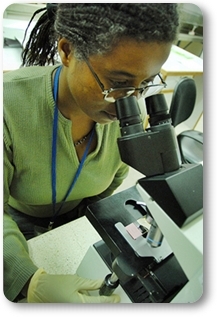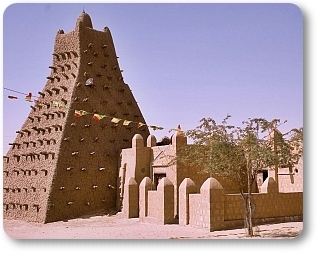African Scholars: Key to Continental Growth

 |
| Timbuktu University, one of Africa's oldest learning centers |
It is vital to recognize the need of collaboration among African scholars across the 53 countries in solving the prevalent African challenges especially in fiscal, political, and social domains. Africa still remains virgin in many areas of development because of lack of an aerial eye that quickly identifies untapped opportunities within and outside the continent. The African scholars come in handy in their role in the discovery and dissemination of information that can propel various government and private sectors to economic advancement.
Looking back in history in 1962, the first version of Internet, Advanced Research Project Agency network (ARPAnet), was established as a result of research collaboration by university scholars with funding from the US department of defense. To date, this technology continues to revolutionize the way of doing business and has greatly contributed to economies through creation of online companies whose annual turnover is in billions of dollars, not only in the US but all over the world.
Several challenges hinder African scholars from attaining uttermost breakthroughs in research and development. These include: poor cultural beliefs/practices, sub-optimization, bounded rationality, and poor project management skills. It is unfortunate that the belief that the more information one has or withholds, the more powerful they are, still persists in leadership styles especially among the older folks in the African society. The situation is exacerbated by a poor documentation culture/practice that has ripped Africa of great ideas and minds which have found rest in the cemetery. This may largely be attributed to the predominant African oral approach to information dissemination, as compared to the more competing approaches for persistent data storage.
Regrettably, most African scholars have little commitment to their core business: research, resulting in few research projects and fewer publications of research findings across the continent. More scholars are opting for ‘moonlight’ teaching across campuses, which has greater and immediate monetory returns as compared to doing research which is hardly supported; fiscally and in terms of tools and equipment. Consequently, institutions of higher learning are producing more workers than thinkers and/or entrepreneurs.
Another great challenge, not only to African scholars, but among African leadership is the issue of sub-optimization. Everyone wants the best for themselves at the expense of the populace. This has resulted in vices like corruption which has greatly inhibited growth in African economies. In reference to World Bank’s Independent evaluation report and a global GDP report conducted in 2007, corruption featured prominently as one of the key hindrances to Africa’s economic advancement. Other determents include: bounded rationality that includes shortages of skilled labor, thin capital markets, and poor infrastructure; political and economic instability and public suspicion of foreign firms.
In the report entitled, ‘Africa’s Ten Fastest Growing Economies in 2007,’ Angola came top on the African list and the fourth globally in terms of GDP growth rate. Sudan and Equatorial Guinea were second and third on the African list, and sixth and seventh respectively on the global country GDP growth rate. Oil production was the main driving force in these three African countries. However, corruption and generally sub-optimization have been the main challenges hampering further economic advancements.
Africa is richly endowed with natural minerals and precious metals that unfortunately have often been the reason behind her many challenges. The blessings of natural mineral and richness in diverse cultures and languages, unmatched world-over, have turned to be curses and unrelenting woes for Africa. However, the good news is that this is a problem that can be solved, and solved with an African solution by Africans.
There needs to be a paradigm shift in the way things have been done in the past. African scholars are key and strategic pacesetters in this change in society, especially in regard to research and exploration of untapped minerals, precious metals, and development of novel tools and technology to support decision-making and management in general. African scholars’ key role in national capacity building through teaching and mentoring young Africans will result in positive behavioral change and better ethical standards in the conduct and management of public affairs, especially public expenditure management. Emphasis should be “unity in diversity” knowing that things that divide Africa and Africans are trivial than what unites them. Scholars can further enhance the understanding of government and private sector partnerships through collaborations in common research interests among peers across the continent. This will advance closer political, economic and human ties across Africa’s 53 national boundaries.
Summary
Firstly, the African scholars’ role in supporting big leaps in economic development should not be undervalued, especially in regard to sustainable capacity building for governments and private sectors by supplying competent and ethical graduates who are well prepared to handle emerging challenges of Africa. Secondly, there is need to improve collaboration in research, teaching and learning among African scholars in the continent. In addition, this should be well supported by sustainable funding from government and the private sector in the respective nations. Thirdly, there needs to be a paradigm shift in the way the African scholars have been doing their business. The more information one dispenses, the more powerful they are. The culture of documentation needs to be inculcated in our scholars, students and society at large. Fourthly, education, especially higher education should train students more of how to think rather than to work. This will make education a powerful process to generate more entrepreneurs than just workers. Fifthly, there should be sufficient funding and infrastructure support for researchers so that they remain focused and committed to the core business of scholars in research, development and teaching of novel ideas that address emerging African challenges.
This will go a long way in curbing brain drain from most African countries to the western nations who are heavily benefiting from the brilliance of African minds in building different sectors of their economies. There are more incentives for these scholars abroad than at home, coupled with excellent environment and infrastructure at their disposal for research. Therefore, unless a similar environment and support is accorded to African scholars, it will be very hard to attract them back home.
However, all is not lost because the African spirit of patriotism will always surpass all others and should be the driving spirit to persuade African scholars in the diasporas to take up their role back at home in developing their respective countries with the wealth of experience, exposure and expertise accrued over the years. If this trend is not reversed, then Africa might not get out of the endless loop of her recurring challenges that include poor management especially of public resources, corruption, sub-optimization, and inhibiting cultural habits. Nonetheless, every stakeholder must be willing to fold up their sleeves and take the first step to bridge these gaps without necessarily waiting for another to start. Indeed, African scholars stand a better chance now than ever before to own up African challenges and spearhead the development of sustainable home-grown solutions.
By Dr Edward O. Ombui
Computer & Information Technology Dept.
Africa Nazarene University (Kenya)
